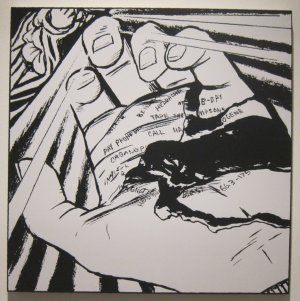A Quote by Benji Madden
I prefer a good review. A bad review that dismisses us... I take it with a grain of salt. I go, 'Okay, they didn't even try.'
Related Quotes
One thing I noticed over time is that if I got a bad review, usually the bad part of it was at the very end. I could tell that nobody read the whole review because they would just say, "It was great to see the review!" In a way, my brain shuts down at the end of an article. It doesn't really want to go to the end.
Writers are funny about reviews: when they get a good one they ignore it-- but when they get a bad review they never forget it. Every writer I know is the same way: you get a hundred good reviews, and one bad, andyou remember only the bad. For years, you go on and fantasize about the reviewer who didn't like your book; you imagine him as a jerk, a wife-beater, a real ogre. And, in the meantime, the reviewer has forgotten all about the whole thing. But, twenty years later, the writer still remembers that one bad review.
I don't read my reviews. Unless I'm unfortunate enough to catch something by accident, which happens, and it's always a bad review. Always, it's amazing. I will be sitting in a café, and I will open a random paper right to the page of the review.... And then you're sucked in and go home and never want to go out again.
Incidentally, the very, very first review that James Lavelle and I saw of Endtroducing was very negative! It was in The Wire, and the context of the review was that, you know, Mo'Wax was so far behind Ninja Tune. Heheheh. And people wonder why there was this sense of a feud between labels! We just kind of looked at each other and we were like, 'Oh, well, let the floodgates open!' But, not to be facile, that was literally the last bad review I ever saw for that album.
People review my comic books. People review every article I write - 'The Atlantic' even publishes them. A great deal of the critique of 'Between the World and Me' was from a feminist perspective. bell hooks pushed back, among others. Some of that has value. Some of it does not. I try my best to separate the wheat from the chaff.




































